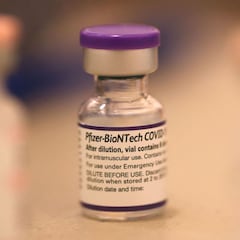What's the reason aspirin isn't recommended for preventing heart attacks?
New guidance for heart disease no longer recommends taking aspirin tablets for over 60s - the harm is greater than the benefit.


The US Preventive Services Task Force, an independent panel of experts, released an updated draft dealing with changes to how the aspirin drug is used for older citizens.
The previous guidance recommended daily low-dose aspirin for people over 50 who were at higher risk for heart attacks or strokes in the next decade and who weren’t at higher risk for bleeding. Now, that is changing.
What does the new guidance say?
The new guidance says, "People ages 40 to 59 who are at higher risk for Cardiovascular Disease (CVD) and do not have a history of CVD should decide with their clinician whether to start taking aspirin... People age 60 or older should not start taking aspirin for heart disease and stroke prevention."
The U.S. Preventive Services Task Force is now saying most adults should not take aspirin to prevent heart attacks or strokes. @drnatalietv joins us with more on what you need to know. pic.twitter.com/U6FMW4MLTY
— TODAY (@TODAYshow) October 13, 2021
While use of aspirin for prevention can still be recommended by a doctor, no one is recommended to take it without consultation. The draft recommendations don’t apply to people who have already had heart attacks or strokes; the task force still recommends that they take aspirin preventively.
“Aspirin only has a benefit if someone is at increased risk for heart disease. They shouldn’t be starting just because they have reached a certain age,” said a member of the 16-person task force, Dr. Chien-Wen Tseng, a professor of family medicine at the John H. Burns School of Medicine at the University of Hawaii.
Why has the guidance changed?
Aspirin works by thinning blood. This helps prevent heart attacks by letting the blood flow through the heart easier. About 659,000 Americans die from heart disease a year. In context, that is 1 in every 4 deaths.
While this is all well and good, easier flowing blood is harder to coagulate. Therefore, if someone who is taking aspirin falls or gets a cut, they are much more likely to lose a significant amount of blood before the wound scabs. It has been ascertained that the risk of increased blood loss for under 60s is a greater threat to someone's health compared to heart disease.
Related stories

Are third vaccine booster shots for covid-19 necessary?

What do I do if I lose my vaccine passport? Can I get a new one?
The CDC estimates more than 36 million adults fall a year. Aspirin intake would increase the risk of serious blood loss from this.
Given the recent study, and we've had this data for nearly 17 months, its insane how the gov't has failed to advise people to take Aspirin the minute they get covid. No, it wont [alone] stop the cytokine storm, but it stops the blood clotting, which is what kills many.
— Daniel Horowitz (@RMConservative) October 11, 2021
If you have doubts about your aspirin intake then you should consult your doctor.